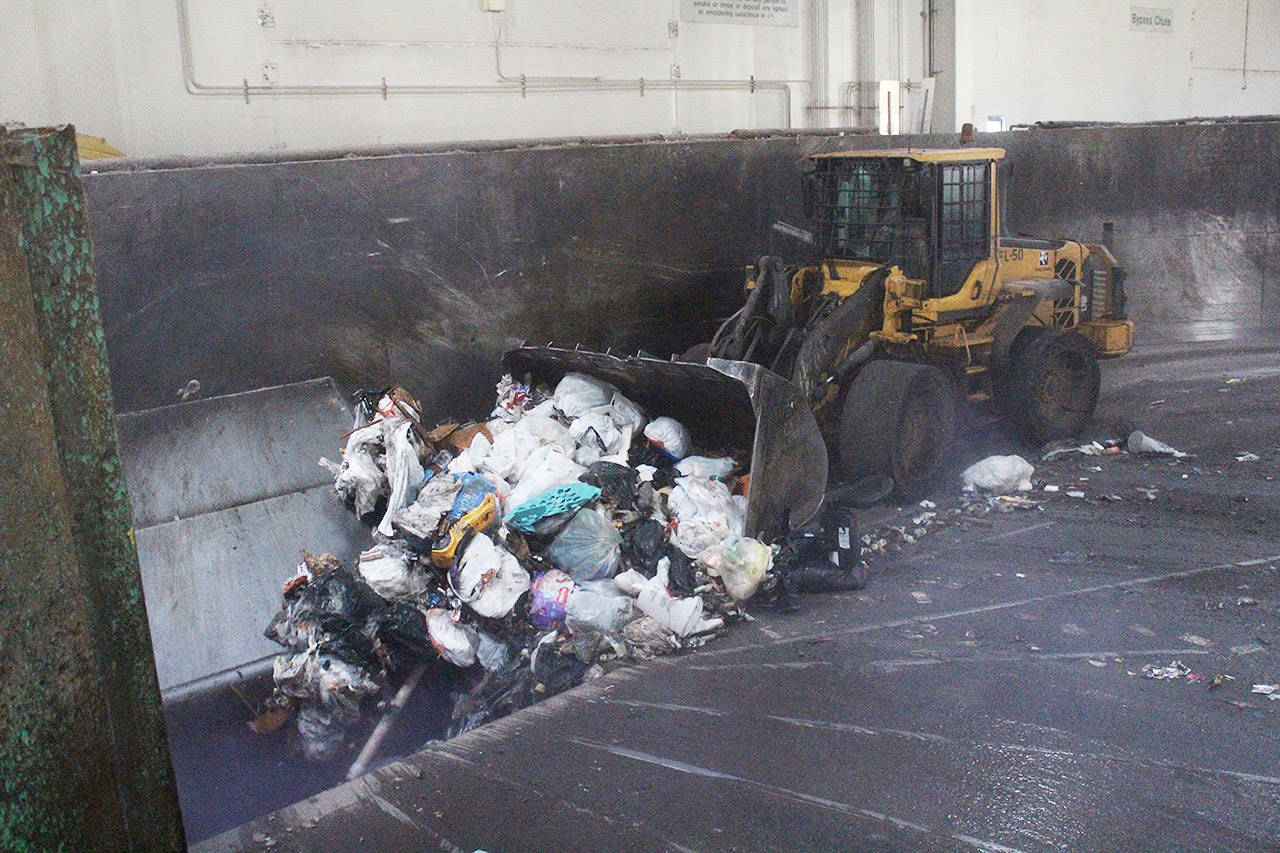A handful of factors, some regional and some stemming from decisions made an ocean away, prompted the city of Enumclaw to propose new rates for collection of garbage, recycling and yard waste.
Members of the City Council heard a report during their Oct. 8 meeting, passed an ordinance on first reading and were expected to formally adopt a new rate structure when they gathered earlier this week.
The ordinance calls for new fees to take effect Jan. 1, 2019.
A number of impacts conspired to cause Enumclaw to consider the rate increase. The first is a 4.6 percent hike in the amount it costs the city to dump trash at the King County-owned transfer station.
But even more dramatic is the impact from China’s so-called “National Sword.” China was long a home for American recyclables, but that nation suddenly quit accepting much of the supply. As a result, cities and towns have been hit with an 81 percent increase when it comes to getting rid of recyclable materials.
Jeff Lincoln, the city’s pubic works director, noted that Enumclaw certainly isn’t alone when it comes to revising its rates.
“I suspect that everybody is going to see significant rate increases to reflect these additional costs,” he told the council. The primary cause, he reiterated, is China’s “wholesale rejection of paper and other goods that were being shipped from the United States.”
How much more should Enumclaw’s residential and commercial customers expect to pay when the new year rolls around?
The financial impacts “are larger to some customers than others,” City Administrator Chris Searcy said when he began his report to the council.
Providing some historical context, Searcy noted the city used to make increases across the board, hitting all customers the same when a rate hike was proposed.
“We haven’t really looked at the true cost of the container service,” he said. That changed this year when the city studied all the numbers and arrived at a “cost of service” rate structure.
The bottom line, Searcy said, was that the city’s Solid Waste Division needed about 8 percent more in the way of annual revenues. Admitting the proposed increase outpaces inflation, he added, “given all the moving pieces, (it is) not as bad as what we might have thought.”
At the heart of its rate study, the city separated its residential and commercial garbage customers, along with the separate collection of recyclables and compostable material.
The study provided a couple of key findings. First, residential customers with smaller garbage cans (20 or 32 gallons) should be paying more, while those with larger cans (64 or 96 gallons) should be paying less.
Also, Searcy said, “commercial customers are subsidizing residential collection to a certain extent.”
Searcy reminded the council that, when the city stormwater utility was created a year ago it was found residential users had been subsidizing commercial customers, something that was addressed during the rate-setting process.
“If were going to hold to that argument of customer equity, we feel it’s important to point that out,” he said.
Another factor in arriving at new disposal rates was actually considering the cost of handling recyclables. “Right now, it’s all kind of rolled into the cost of operation that shows up on the garbage bill,” Searcy said.
So, what will customers be paying come Jan. 1, assuming the ordinance received a final council blessing Monday night?
• residents with a 20-gallon mini-cart will pay $25.68 per month, or almost $7 more than the current rate;
• residents with a 32-gallon cart will pay $28.45, or about $4 more;
• residents with a 64-gallon cart will pay $35.81, about $3 less, and those with 96-gallon carts will see their rate drop to $43.18, about $9 per month less;
• for commercial customers, all will see their monthly rate decrease, but they will incur a new (non-mandatory) fee for recycling. Unlike residential customers, businesses will not be required to recycle; if they do, they will pay the same fee as residential users.
All things considered, residential charges look to jump about 13.2 percent after factoring in a $1 monthly increase for compost. Commercial customers should see a decrease of 6.8 percent (with desired recycling being a separate issue).


